第10章 P. H. Woodward(3)
One of the most villainous and at the same time successful devices was built up on the offer of counterfeit currency at a heavy discount. In substance, the circulars, emanating from different parties, and from the same parties under different names, were all alike. They usually began with an insidious compliment to the person addressed, to the effect that from trustworthy sources the writer had heard of him as a man of more than ordinary capacity and shrewdness, and, emboldened by the high estimate placed upon his abilities by persons well qualified to judge, had selected him as the very individual to aid in securing a fortune for both with "absolute safety." The circular usually goes on to state that the writer is a first-class engraver,--indeed "one of the most expert in the United States,"--while his partner is a first-class printer.
Hence the firm possess unrivaled facilities for imitating the national currency. The recipient is particuarly cautioned to beware of a class of miscreants who infest the city of New York and advertise throughout the country the goods that he manufactures, but send nothing except rubbish. The "original Doctor Jacobs" excoriates unmercifully the whole tribe of swindlers whose rascalities debauch and bring odium upon the trade. He exhorts the gentleman of great reputed "shrewdness and sagacity" to observe the utmost caution in conducting operations, and gives him explicit directions how to forward the purchase-money.
Several years ago a preacher of the gospel, stationed not far from the northern frontier of the republic, received by mail one of the seductive missives of Ragem & Co., of New York City. The douceur opened with the usual complimentary references to the peculiar personal fitness of the clergyman for the proposed enterprise, and went on to state that, in exchange for genuine greenbacks, Ragem & Co. would furnish in the proportion of fifty to one imitations so absolutely perfect that the most experienced bank officers could not distinguish the difference. Rev. Zachariah Sapp,--for such was the euphonious name of the preacher,--after an attentive perusal of the flattering proposal, deposited the document in his coat-pocket for convenience of reference. Having pondered the subject for a day or two, he decided to write to Ragem & Co. for more explicit information.
Divining with the peculiar instinct of the guild the character of the fish now nibbling at the naked hook, the cheat resolved to risk a little bait, and accordingly sent by return mail a genuine one-dollar note, with a written invitation both for a reply and a personal conference.
Never before did the Rev. Zachariah Sapp subject a piece of paper to such scrutiny. Both with the naked eye and with a microscope,--a relic of collegiate days,--he studied the engravings and filigree work. Detail by detail he compared the supposed imitation with bills of known genuineness without being able to discover the slightest point of variation between them. Paper, printing, and engraving seemed to be absolutely perfect. While the study was progressing, the imagination of the clergyman soared through the empyrean of dazzling expectations. Why continue to toil hard for a small pittance when the golden apples were hanging within easy reach? Why drag out an existence in penury when wealth and its joys were thrust upon him?
Zachariah, however, was prudent and thrifty--indeed rather more thrifty in the estimation of parishioners than befitted one who held by right of faith a title-deed to mansions in the skies.
Almost as soon would he risk his future inheritance as peril on a doubtful venture the few hundred dollars snugly saved up for a wet day by prudence and economy.
Not willing to rely entirely on his own judgment, he rather reluctantly decided to call on a banker in an adjacent town, with whom he enjoyed a slight acquaintance. In thinking the matter over he was greatly perplexed to determine how to introduce the subject.
Of course it would not answer to allow the cashier to fathom his secret purpose, and yet he was oppressed with a vague consciousness that only a translucent film hid his thought from the world. Once or twice, in driving over on the unfamiliar errand, weak and irresolute he half resolved to turn back, but greed finally prevailed, and he kept on to the village.
With a strong but unsatisfactory effort to appear at ease, he sauntered into the bank. After the usual interchange of greetings, he nervously remarked, "Brother Hyde, as I was coming this way to-day to call on Brother Tompkins, I have taken the liberty to drop in to ask you a question on a matter in your line."
"Very well," replied the banker, "I shall be happy to serve you."
"I had a transaction a few days ago," resumed the clergyman, "with a peddler,--an entire stranger to me,--who, in making change, gave me a number of bills which I have reason to suspect are counterfeits. I desire your opinion."
"Please let me see them," said Mr. Hyde.
He took the one-dollar note from the hand of the unfaithful pastor, and after scanning it a moment, inquired, "What is the matter with it?"
"Is it good?" queried the anxious owner.
"I wish I had my safe full of the same sort," answered the banker.
"There is nothing bad about the bill. What makes you think so?
Perhaps you have shown me the wrong one. Let me see the others."
"I must have left the rest at home," replied the preacher, fumbling among the compartments of the pocket-book.
Having accomplished the object of his mission without perpetrating, as he thought, any disastrous blunder, Mr. Sapp brought the interview to a close with a few commonplace remarks, and hurried away to enjoy in solitary self-communion the thick-crowding visions of future affluence.